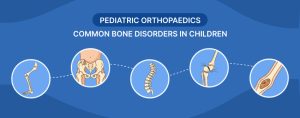Your heart rhythm plays a central role in keeping the body functioning properly. When it beats too fast, too slow, or irregularly, it can affect circulation and overall health. There are multiple factors that can help you keep your heart healthy. One of the most effective ways to support a stable heart rhythm is through diet. Certain foods contain nutrients that strengthen electrical activity in the heart and help it beat more regularly. In this guide, we will explore heart rhythm foods that can support cardiovascular well-being.
Why Heart Rhythm Matters
A healthy heart rhythm ensures blood flows steadily throughout the body. Irregular heartbeats, known as arrhythmias, may occur when the heart’s electrical signals are disrupted. Nutrients such as omega-3 fatty acids, potassium, magnesium, and antioxidants are known to help regulate these electrical signals, reduce inflammation, and stabilise rhythm.
Foods That Promote a Healthy Heart Rhythm
1. Fatty Fish: A Rich Source of Omega-3s
Fatty fish such as salmon, tuna, mackerel, and sardines provide omega-3 fatty acids that reduce inflammation and help regulate heartbeat. These fats are linked to lower risks of irregular rhythms and can support overall heart health. Many nutrition experts recommend including at least two servings of fatty fish each week, but it is always best to seek guidance from your doctor.
2. Nuts and Seeds: Small but Powerful Heart Helpers
Walnuts, almonds, flaxseeds, and chia seeds are packed with healthy fats, magnesium, and antioxidants. These nutrients lower cholesterol, improve blood vessel health, and play a role in reducing arrhythmia risk. Even small portions of nuts or seeds daily can positively impact heart function.
3. Fruits and Vegetables: Nutrient Powerhouses
Colourful fruits and vegetables are among the best foods for heart rhythm. Berries, bananas, tomatoes, spinach, and kale are rich in potassium and antioxidants, which help maintain normal & High blood pressure and support stable rhythms. Eating a variety of colours each day ensures a wider intake of essential nutrients.
4. Whole Grains: Fuel for Heart Health
Whole grains such as oats, quinoa, brown rice, and whole wheat provide soluble fibre, which lowers cholesterol and regulates blood sugar. Consuming more whole grains over refined options is linked with a reduced risk of cardiovascular disease, indirectly supporting a healthier rhythm.
5. Legumes: A Fibre and Mineral Boost
Beans, lentils, chickpeas, and black-eyed peas offer potassium, magnesium, and plant-based proteins. These minerals are particularly valuable for heart rhythm regulation. Legumes also help balance blood sugar levels and keep cholesterol in check.
6. Dark Chocolate: A Heart-Healthy Treat
Dark chocolate with at least 70% cocoa contains flavonoids that support blood vessel function and reduce inflammation. When eaten in moderation, it can be a tasty addition to a heart-healthy diet. Limiting intake to a few squares a few times per week is often suggested, though individuals should always consult their healthcare provider.
Also Read – What is a Cardiologist? Roles, Responsibilities, and Importance in Heart Care
Foods to Limit for Heart Rhythm Health
1. Processed Foods
Packaged snacks, deli meats, and fast food often contain high amounts of sodium, unhealthy fats, and added sugars. These can increase the risk of high blood pressure and arrhythmias.
2. Saturated Fats
Foods rich in saturated fats, such as red meat, butter, and full-fat dairy, may raise LDL cholesterol. Opting for lean proteins and healthier fats can reduce stress on the heart.
3. Sodium
Excess sodium raises blood pressure and strains the heart. Guidelines suggest keeping daily intake below 2,300 mg, with an ideal target of 1,500 mg for optimal heart health. Herbs, spices, and fresh ingredients can enhance flavour without added salt.
Foods to Avoid for Better Heart Rhythm
To maintain a balanced rhythm, it is advisable to limit:
- High-sodium processed foods
- Excess caffeine
- Alcohol
- Sugary foods and refined carbohydrates
These items may overstimulate the heart, disrupt blood pressure, or contribute to weight gain, all of which can affect rhythm.
Lifestyle Tips to Complement Heart Rhythm Foods
Diet works best when combined with other healthy habits. Regular physical activity, proper hydration, stress management, and good sleep are all essential for maintaining a steady heart rhythm. Patients are always encouraged to discuss any lifestyle changes with their doctor before making adjustments.
Conclusion
A balanced diet plays a key role in keeping your heart rhythm steady and strong. Incorporating heart rhythm foods such as fatty fish, nuts, fruits, vegetables, whole grains, legumes, and dark chocolate can provide essential nutrients that support cardiovascular health. Alongside healthy lifestyle choices, these foods can contribute to lifelong heart protection. For tailored advice, it is important to consult a healthcare professional.
Also Read – World Hypertension Day 2025: Diagnosis, Treatment & Myths around Hypertension
Frequently Asked Questions
1. How does potassium help regulate heart rhythm?
Potassium supports the electrical signals in the heart that control the heartbeat. Adequate levels of this mineral help prevent irregular rhythms by balancing sodium in the body. Low or high potassium can affect rhythm, so it is important to get the right amount under a doctor’s guidance.
2. Are bananas good for heart rhythm?
Yes, bananas are a natural source of potassium, which plays a role in supporting stable heart rhythms. Including them as part of a balanced diet may be beneficial, but patients with heart conditions should consult their doctor before increasing intake.
3. How do omega-3 fatty acids support heart rhythm?
Omega-3 fatty acids, found in fatty fish such as salmon, tuna, and mackerel, help reduce inflammation and support healthy electrical activity in the heart. They may also lower the risk of arrhythmias, though the exact benefit can vary for each person.
4. Which vitamins are important for heart rhythm?
Vitamins such as vitamin D, vitamin B12, and folate contribute to heart and nerve function, which can influence rhythm. These nutrients are best obtained through a balanced diet or supplements if prescribed by a doctor.
5. What foods should I avoid if I have an irregular heartbeat?
Foods high in sodium, excess caffeine, alcohol, and refined sugars may trigger or worsen irregular heartbeats. Limiting processed foods and choosing fresh, whole options may support overall heart rhythm health. Always check with your healthcare provider for individual advice.
6. How often should I eat heart rhythm foods?
Consistency matters more than quantity. Regularly including foods rich in potassium, magnesium, fibre, and omega-3s in your daily meals can support long-term heart rhythm health. Doctors can provide guidance on portion sizes based on your condition.
7. Do nuts help with heart rhythm regulation?
Yes, nuts such as walnuts and almonds contain healthy fats, magnesium, and antioxidants that benefit heart function. A small portion daily may support rhythm regulation, though moderation is key due to their calorie content.
8. Can diet alone improve heart arrhythmias?
Diet plays a significant role in supporting heart rhythm, but arrhythmias often require medical assessment and treatment. Nutrition can complement medical care, but it is not usually a complete solution on its own. Always seek advice from a cardiologist for a personalised treatment plan.
Medically Reviewed by — Dr. Saket Bhardwaj (Principal Director & HOD – Cardiology)

















